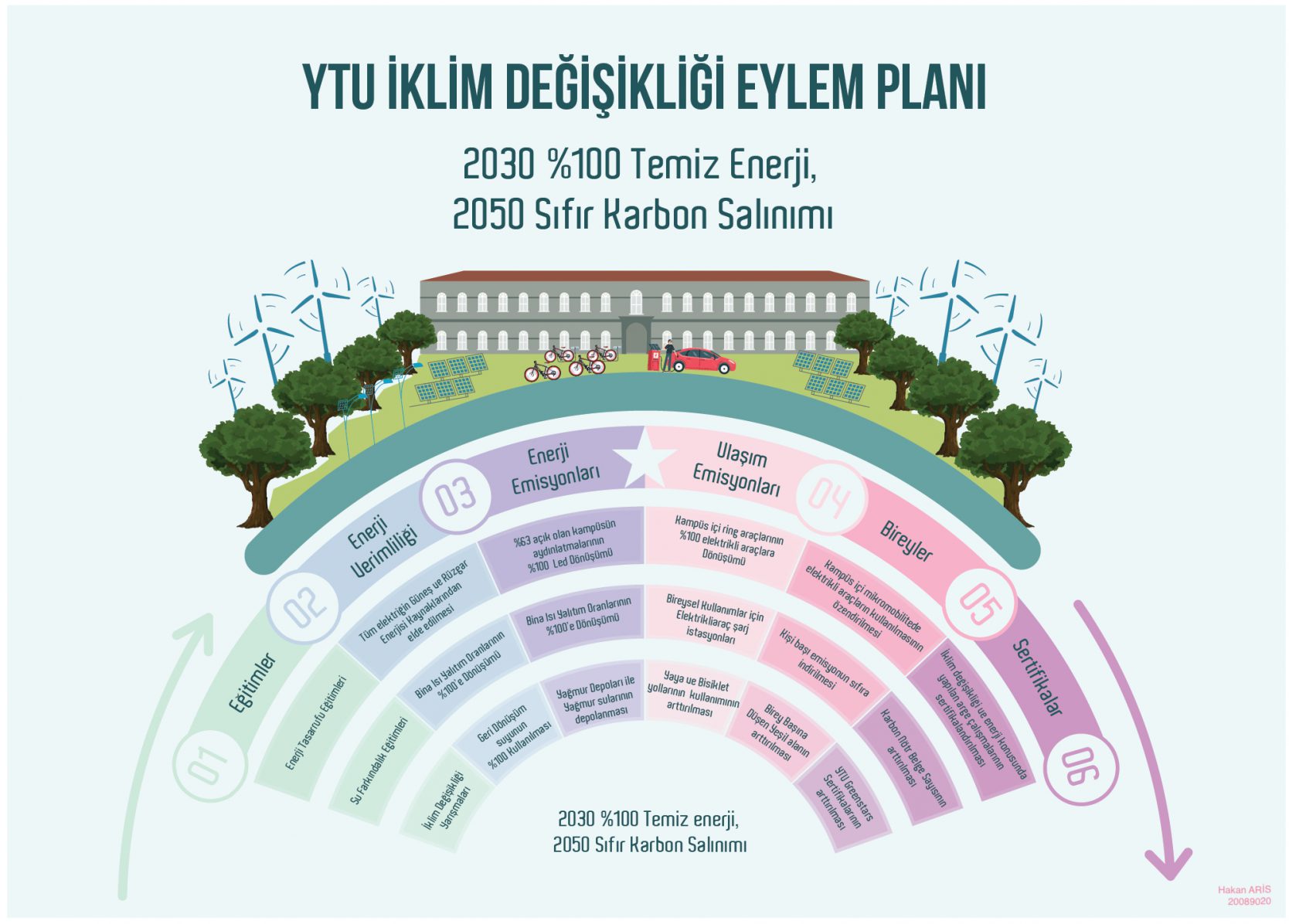The increasing energy demand proportional to the world’s population is still largely met by fossil fuels. However, environmental pollution caused by the use and depletion of fossil resources has led to a search for new and clean energy sources. Our university, with its academic and administrative efforts, supports this philosophy that the whole world is moving towards.
Within the scope of the projects carried out, the designs of the buildings in our university have been developed to minimize energy consumption, and energy-efficient appliances are preferred where the use of electricity-consuming appliances is required. Energy consumption is monitored throughout the campus and electronic equipment is replaced with new generation versions consuming lower energy during renovation and maintenance works. The most basic example of this is the natural lighting windows designed to maximize the use of daylight in the buildings. The use of LED lighting is supported in all buildings across the campus during dark hours. At the same time, energy consumption is minimized with smart systems such as automatic doors and automatic lighting systems in many buildings. A similar situation exists for ventilation systems. Thanks to the building designs, air flow can be realized in a healthy way, but at points where temperature control and natural ventilation are insufficient, air-conditioning systems with high energy efficiency “inverter” technology are used. Particular attention is paid to ensure that devices such as coolers used in areas such as laboratories and faculty kitchens are energy-efficient with “Class A” certification. Computers and printers, which are among the most frequently used electronic devices on campus, have the Energy-Star certificate, which is an energy saving standard and shows that the product consumes 20-30% less energy than expected.
Another of the most important issues in minimizing energy consumption and ensuring the security of buildings is smart building applications. All buildings and garden areas on our campus are monitored by cameras. In this way, problems such as theft and fire can be addressed immediately. Thanks to the fire alarms in all buildings and the guidance signs prepared within the scope of Occupational Health and Safety standards, evacuation with minimum damage is aimed in case of disaster. Meters for instant monitoring of electricity consumption and fuse systems that can prevent electricity leakages and self-deactivate in case of an electricity leakage are the two basic elements of the electricity infrastructure on our campus.
In addition, another step taken by Yıldız Technical University towards becoming a Sustainable Campus is the “Davutpaşa Campus Solar Panel Project”, which is planned to be commissioned in 2021. In this project, it is aimed to meet a significant portion of the electricity to be used on campus with solar panels from on-campus sources.


